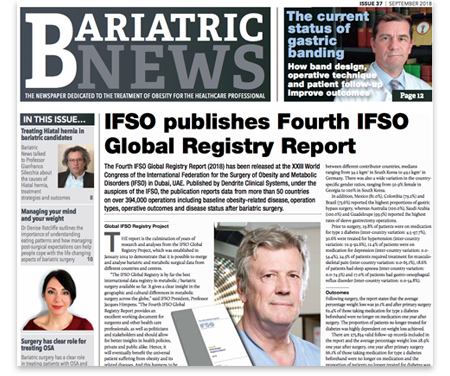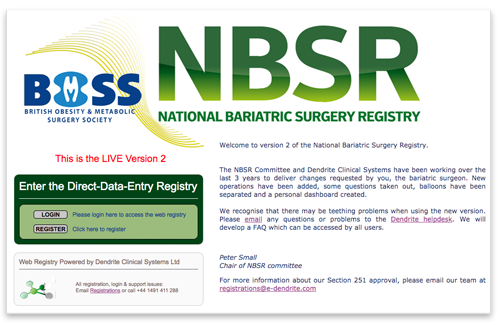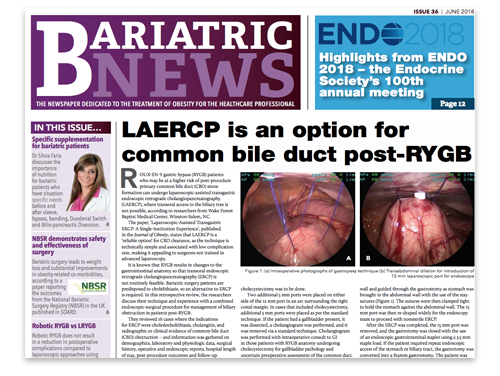Dendrite and BSACI launch BRIT immunotherapy registry
 Dendrite Clinical Systems and the British Society for Allergy & Clinical Immunology (BSACI) have launched the British Registry for Immunotherapy (BRIT), a web-based patient registry that records immunotherapy treatment of patients under the care of BSACI consultants practicing in the UK.
Dendrite Clinical Systems and the British Society for Allergy & Clinical Immunology (BSACI) have launched the British Registry for Immunotherapy (BRIT), a web-based patient registry that records immunotherapy treatment of patients under the care of BSACI consultants practicing in the UK.
“We are delighted to launch the first national immunotherapy registry in the UK,” said Dr peter Walton, managing Director of Dendrite Clinical Systems. “By recording each and every serious adverse event during immunotherapy treatment, the BSACI we will be able to monitor the efficacy of immunotherapy enabling the BSACI to guide commissioning of services and guideline development.”
BRIT is a secure web-based registry that can record the use of Allergen Immunotherapy (AIT) by both subcutaneous and sublingual immunotherapy routes (also known as SCIT and SLIT). By venom immunotherapy (VIT) and the use of the monoclonal antibody Omalizumab (OMA) for Chronic Spontaneous Urticaria (CSU) in patients under the care of BSACI registered consultants. It will help consultants keep track of their patients and monitor their response to treatment by using email PROM reported directly by participants. It will also monitor safety and access to treatment around the UK.
To better understand what the current practises are in the UK, an online registry was developed by Dendrite using their “Intellect Web” software. This allows consultants to enter patient data online, using a range of modern html-5 compatible web browsers, without the need to install additional software or perform any complex system configurations.
The registry is open for all consultant BSACI members to register their practice(s) for both adult and paediatric patients. Additional healthcare professionals in the practice can register as users under the same practice in order to input data into the registry.
The registry is funded by unrestricted grants from three companies: AlK Abello, Allergy Therapeutics and Stallergenes.
 Dendrite Clinical Systems, the publisher of Bariatric News, is pleased to announce issue 37 of the newspaper is now available to view/download. The newspaper reports on research, technology, events and policy in the bariatric specialty, the latest clinical studies, policy changes and product news, the latest meetings and events, interviews prominent bariatric experts, and host debates between specialists on controversial topics.
Dendrite Clinical Systems, the publisher of Bariatric News, is pleased to announce issue 37 of the newspaper is now available to view/download. The newspaper reports on research, technology, events and policy in the bariatric specialty, the latest clinical studies, policy changes and product news, the latest meetings and events, interviews prominent bariatric experts, and host debates between specialists on controversial topics. Dendrite Clinical Systems has received an order to extend the clinical database system and install its new Data Analysis System at the Al Babtain Hospital, Dammam, Saudi Arabia. Dendrite’s unique clinical database system includes four types of analytics and reports:
Dendrite Clinical Systems has received an order to extend the clinical database system and install its new Data Analysis System at the Al Babtain Hospital, Dammam, Saudi Arabia. Dendrite’s unique clinical database system includes four types of analytics and reports: The positive outcomes from the UK-ROPE (Registry of prostate embolization) – a collaboration initiated by British Society of Interventional Radiology (BSIR) and Dendrite Clinical Systems – has resulted in a National Institute of Health and Care Excellence (NICE) recommendation that prostate artery embolization (PAE) should be made available by the NHS.
The positive outcomes from the UK-ROPE (Registry of prostate embolization) – a collaboration initiated by British Society of Interventional Radiology (BSIR) and Dendrite Clinical Systems – has resulted in a National Institute of Health and Care Excellence (NICE) recommendation that prostate artery embolization (PAE) should be made available by the NHS. Dendrite Clinical Systems and the British Obesity & Metabolic Surgery Society (BOMSS) have launched Version 2 of the National Bariatric Surgical Registry, which includes several enhancements and changes improving the data collected and reporting.
Dendrite Clinical Systems and the British Obesity & Metabolic Surgery Society (BOMSS) have launched Version 2 of the National Bariatric Surgical Registry, which includes several enhancements and changes improving the data collected and reporting. Dendrite Clinical Systems, the publisher of Bariatric News, is pleased to announce issue 36 of the newspaper is now available to view/download. The newspaper reports on research, technology, events and policy in the bariatric specialty, the latest clinical studies, policy changes and product news, the latest meetings and events, interviews prominent bariatric experts, and host debates between specialists on controversial topics.
Dendrite Clinical Systems, the publisher of Bariatric News, is pleased to announce issue 36 of the newspaper is now available to view/download. The newspaper reports on research, technology, events and policy in the bariatric specialty, the latest clinical studies, policy changes and product news, the latest meetings and events, interviews prominent bariatric experts, and host debates between specialists on controversial topics. Dendrite Clinical Systems has received an order from NHS Wales to expand the successful Regional Lung Cancer Registry in North Wales to cover the whole of the country, established the Welsh National Lung Cancer Pleural Nodules Registry. The registry is designed for health professionals to collect, view and use real-time data about their patients with pleural disease.
Dendrite Clinical Systems has received an order from NHS Wales to expand the successful Regional Lung Cancer Registry in North Wales to cover the whole of the country, established the Welsh National Lung Cancer Pleural Nodules Registry. The registry is designed for health professionals to collect, view and use real-time data about their patients with pleural disease.


